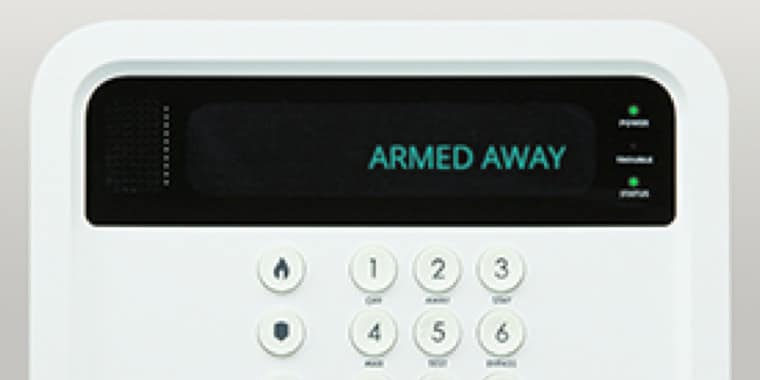Forming a Neighborhood Watch is one of the most empowering things homeowners can do to improve the safety and perceptions of safety in their communities. But who can start a Neighborhood Watch and how does one work, exactly?
Here's what you need to know about how to start a Neighborhood Watch program and how to get the most out of the program no matter where you live.
What Is a Neighborhood Watch Program?
Neighborhood Watch is a program created by the National Sheriff’s Association in the 1970s. It brings together private citizens and police to empower communities, reduce crime, and improve residents' quality of life.
Today, Neighborhood Watch chapters are active in the United States, the United Kingdom, and Canada. Chapters are sometimes also referred to as:
Block watches
Home watches
Citizen alert groups
Community watch group
The program's primary goals are to:
Increase reporting of suspicious activity to law enforcement
Crime prevention
Remove or reduce factors in a community that can promote or encourage crime
Improve overall community safety
Neighborhood Watch programs can be any size. Historically, they have ranged from as few as three households to entire neighborhoods housing scores of thousands of people.
How Does a Neighborhood Watch Group Work?
Most Americans are familiar with the concept of Neighborhood Watch. Yet many remain vague on how the program actually works.
To some degree, this is because Watches can work differently in different communities. While the core of the program remains the same, each community will have its own needs. Participants can customize their choice of Watch activities to best address those needs.
The core tenets of a Watch program are:
Citizens within a geographic area uniting with the stated purpose of making their community safer
Those citizens liaising with their local law enforcement to improve reporting of suspicious activity
Individual homeowners improving the safety of their properties through safety surveys, the installation of home security systems, and similar actions
Other common activities undertaken by the Neighborhood watch group include:
Operating citizen patrols
Providing free household safety assessments
Delivering educational presentations and programming
Participating in community clean-up and beautification efforts
In addition to partnering with law enforcement, some Watches partner with local faith-based and not-for-profit organizations, as well.
It is important to be clear that regardless of their scope or size, Watches are not vigilante law enforcement groups. Participants facilitate crime prevention by removing easy opportunities for criminals and by providing valuable information to the local police department. They do not attempt to stop or apprehend criminals themselves.
What Makes a Successful Neighborhood Watch Program?
A good Neighborhood Watch program has a few key characteristics.
First, they are inclusive. Watches should not discriminate against anyone in the community. They should provide safety resources for renters as well as homeowners and be accessible to all citizens.
In areas where much of the population speaks a language other than English, information should be available in both English and the second language. As much as possible, meetings and events should also be accessible to local non-English speakers.
Second, Watch programs should be active and visible. This is essential to improving resident perceptions of safety and discouraging criminals from targeting the area.
Third, good Watch programs are organized. No program can be effective if:
Interested parties can't get involved
Residents can't get information when they need it
Information does not flow effectively between the community and law enforcement
Do Neighborhood Watch Programs Actually Help?
On average, research suggests an active Neighborhood Watch group reduces crime by around 16 percent. They also offer a host of related benefits, including:
Improved qualify of life
Increased community pride and unity
Increased perception of control and responsibility among citizens
Better relationships between citizens and local law enforcement
Opportunities for civic engagement among youth
All of these benefits make starting a Neighborhood Watch program in your community a powerful opportunity to improve your quality of life.
Getting Started
Neighborhood Watch programs can be launched by local law enforcement or private citizens. This means that if you want to start a Watch in your area with a neighbor or two, there's nothing stopping you!
Before starting a Watch in your neighborhood, however, do some research.
First, talk to your neighbors and local community leaders. Ask what people's biggest safety concerns are, whether that be property crime or something else, and what they feel are the biggest barriers to improved personal or community safety.
This information can help you tailor your initial meetings and educational efforts to align with people's personal goals. That will generate high levels of interest and participation.
Second, contact your local law enforcement. Learn who the designated liaison is or ask that one be appointed. Ask about what resources, if any, your local precinct can provide you.
Third, gather crime statistics for your community. Use online tools or ask your law enforcement liaison for detailed local figures. This will help you explain to your community why you need a Watch and how valuable it can be.
How to Start a Neighborhood Watch
Once you've done your homework, it's time to launch your watch! Here are the key steps you'll need to follow.
1. Plan a Neighborhood Watch Meeting
Choose a free, third-party location such as your local library for the first Neighborhood Watch meeting.
This ensures that it is safe and easy to find.
Advertise the meeting in advance through social media, word of mouth, and any well-read local publications available to you. Be sure to include the date, time, location, and contact information so that people can reach you beforehand if they have questions. Don't forget to invite your law enforcement liaison!
Consider setting up a social media account for Watch members on Facebook, Twitter, or another common platform. This can make it easy for people to get information ahead of time and allow you to hand out the link at your meeting. That can streamline later communication.
If you can, purchase a few snacks and have cards, fliers, or other information available that people can take home with them.
2. Hold a Meeting
Use the following basic agenda to structure your meeting:
Make introductions
Explain what Neighborhood Watch is (and is not) and why you want to start one
Discuss neighborhood crime statistics, risk factors, and opportunities
Brainstorm and develop a plan
Determine next steps
Your law enforcement liaison can be a key resource in helping you plan and run your first meeting. But don't think that you have to start a Watch alone. If you can, recruit friends or neighbors you already know to help you.
If your Watch area is large, break it down into smaller sections, such as blocks. Assign each block a "block captain" who can help you disseminate information, coordinate with their immediate neighbors, and work the overall plan.
A block captain will be crucial in helping to quarterback your Watch's plan. More on that in the next section!
3. Work the Plan
Once you've agreed on what your biggest challenges and opportunities are and how to take action, it's time to work the plan. Consider buying a Neighborhood Watch sign and registering your group with the National Neighborhood Watch website to make your efforts more visible along the way.
Also, take advantage of these top tips for starting a Neighborhood Watch and keeping it strong:
Schedule regular meetings and events
Communicate regularly and clearly on social media
Build partnerships with businesses and local governmental leaders, non-profits, and others whenever you can
Celebrate your wins, big and small
The Role of Home Security Systems
Home security systems often play a key role in successful Neighborhood Watch programs. Criminals are proven to be less likely to target homes where security camera crime video might be collected and used against them. This is true in situations where they may be caught on a doorbell camera, as well.
App-enabled security systems also allow homeowners to share detailed information about suspicious activity with law enforcement, even if it occurs while they are not at home.
Neighborhood Watch programs can and should educate participants on:
How to perform safety assessments on their homes and properties
Basic home safety practices and tools
The types of safety solutions home security systems can offer
How to set up and use their security systems for maximum efficiency
With this information, participants can network with each other and law enforcement to identify trends and keep an eye on problem areas. This empowerment is the foundation of Neighborhood Watch success.
Find More Great Home Security Resources
Now that you know how to start a Neighborhood Watch, let us help you gather the information you need to host powerful Watch meetings.
Check out our resources page for information on security cameras and systems that you can use to help educate other Watch participants on how to best protect their homes.





